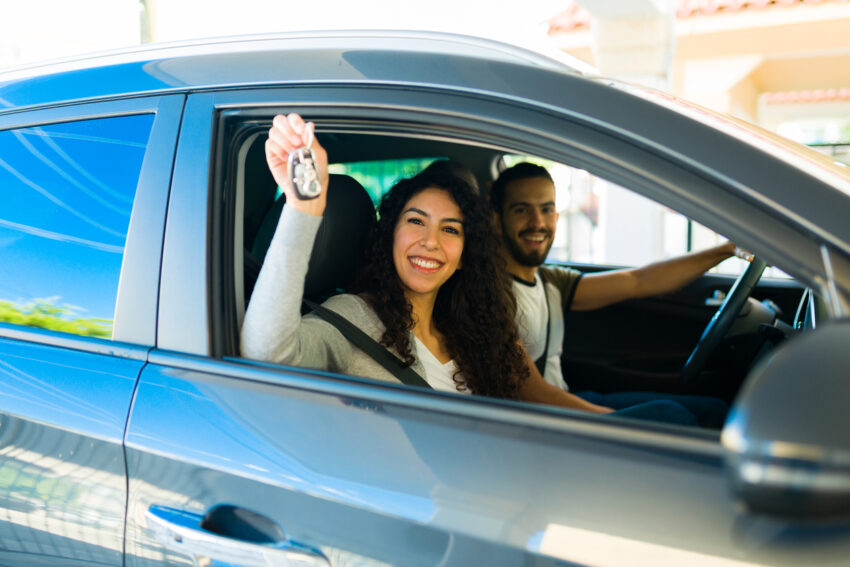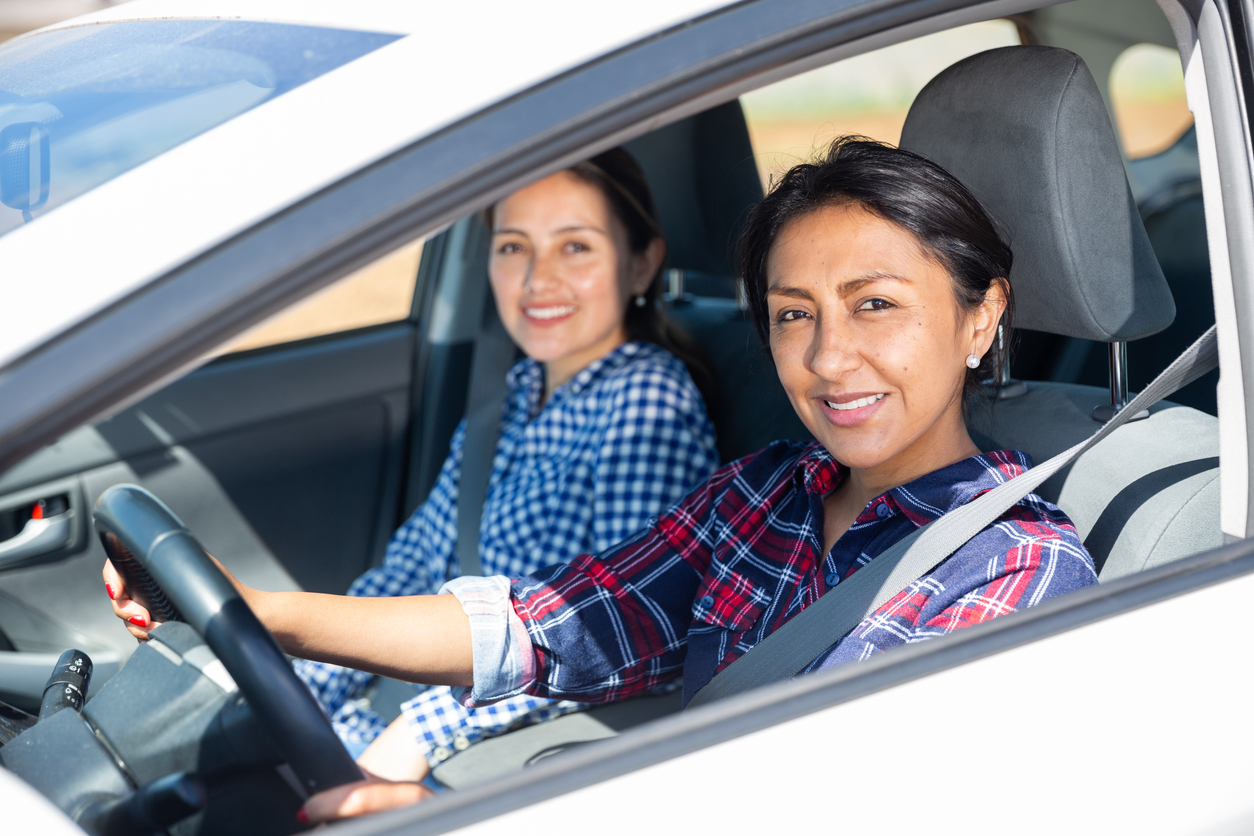
Share On Social!
One of the biggest contributors to climate change are gasoline-powered vehicles, which emit greenhouse gases that warm Earth’s atmosphere.
In a positive step, our nation is shifting toward climate-friendly electric vehicles (EVs), which emit less greenhouse gasses than gasoline-powered cars, even when accounting for manufacturing and the electricity used for charging.
But a new survey by Axios reveals disparities in EV accessibility, especially in the Latino population.
How might these disparities impact Latino health and our nation’s fight against climate change?
How Do Latinos Feel About EVs?
According to the Axios survey, most Latinos (60%) say it’s important to shift to EVs to minimize climate change damage, but they expressed more interest in buying gas-powered vehicles over EVs.
These results suggest that EVs aren’t accessible for most Latinos.
This may be because EVs are generally more expensive than gas-powered vehicles. The average price of a new EV is somewhere around $64,000. In comparison, the average cost of a new gas-powered car is about $49,000, with some new cars averaging below $20,000.
Many Latinos work in industries with lower pay, no paid sick leave policies, and affordable health insurance plans.
As a result, Latinos make up a very small percentage of new EV registrations (about 3% from Jan. 2022 to May 2022), despite representing 18.9% of the US population.
Further, an Axios analysis from earlier this year found that EV charging stations are easier to find in whiter, wealthier neighborhoods.
Because many Latinos live in rural areas and travel long distances to school, work, and healthcare appointments, it makes sense why they rely on gas-powered vehicles.
“Most Latinos don’t know other people who have electric vehicles because they’ve been so expensive and so focused largely on wealthier white communities,” Republican consultant Mike Madrid told Axios.
Efforts to Increase EV Accessibility

If EVs are to play a pivotal role in our fight against climate change, EVs must become more affordable and charging stations must become more accessible.
Currently, these two disparities limit black and brown communities from breathing cleaner air.
To help make EVs more affordable, President Biden is making private and public sector investments that will “lower the cost of EVs and EV charging infrastructure; increase consumer demand and competition; promote equity and inclusion; and accelerate the growth of the EV market,” according to the White House.
President Biden is also making charging stations more accessible through a $5B plan to build a national network of EV chargers along interstate highways and a $2.5B plan to build community-based charging stations in residential and public areas, such as parking lots, schools, grocery stores, and parks.
The idea is to assure EV drivers – no matter where they’re from or where they’re going – that they’ll never be stranded without a charging station.
Additionally, in line with President Biden’s Justice40 Initiative, up to 40% of benefits from these charging station investments will flow to “disadvantaged communities that are marginalized, underserved, and overburdened by pollution,” according to the White House.
Through these efforts, our nation can stand equitably together in the fight against climate change.
Read the latest White House statement on its national network of EV chargers.
Learn more about the Justice40 Initiative.
You Can Advocate for Climate Change Action
Communities of color are more likely to live in areas with high rates of air pollution coming from oil refineries, petrochemical plants, and gas-powered cars.
Exposure to these toxins can harm health.
“People who live in these neighborhoods experience higher levels of exposure to toxic emissions such as benzene, mercury and sulfuric acid than those who don’t live near these industries,” Andrea Marpillero-Colomina, a lecturer at The New School and a member of GreenLatinos, wrote in The Conversation. “They also have higher rates of heart disease, cancer and asthma.”
While government leaders establish climate change actions and policies to address these issues, you can also help speak up for a healthier environment.
Select your county and get a Health Equity Report Card by Salud America! at UT Health San Antonio. In your report card, you will see maps, data, and gauges to compare health equity issues, including environmental concerns, to the rest of your state and nation.
You can email your Health Equity Report Card to local leaders to stimulate community change. Use the data in your materials or share on social media to raise awareness.
Get your Health Equity Report Card!
Explore More:
Transportation & MobilityBy The Numbers
27
percent
of Latinos rely on public transit (compared to 14% of whites).



